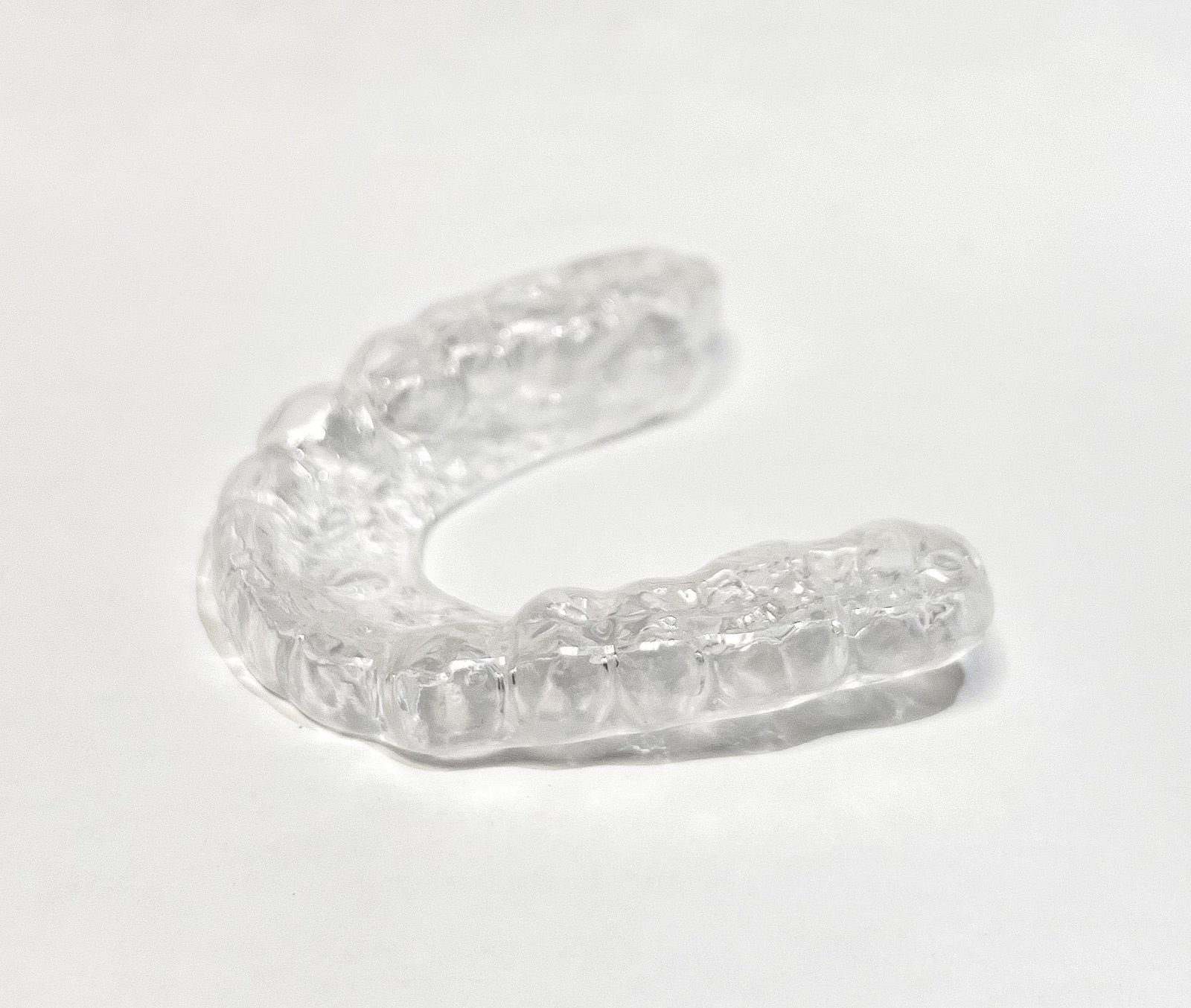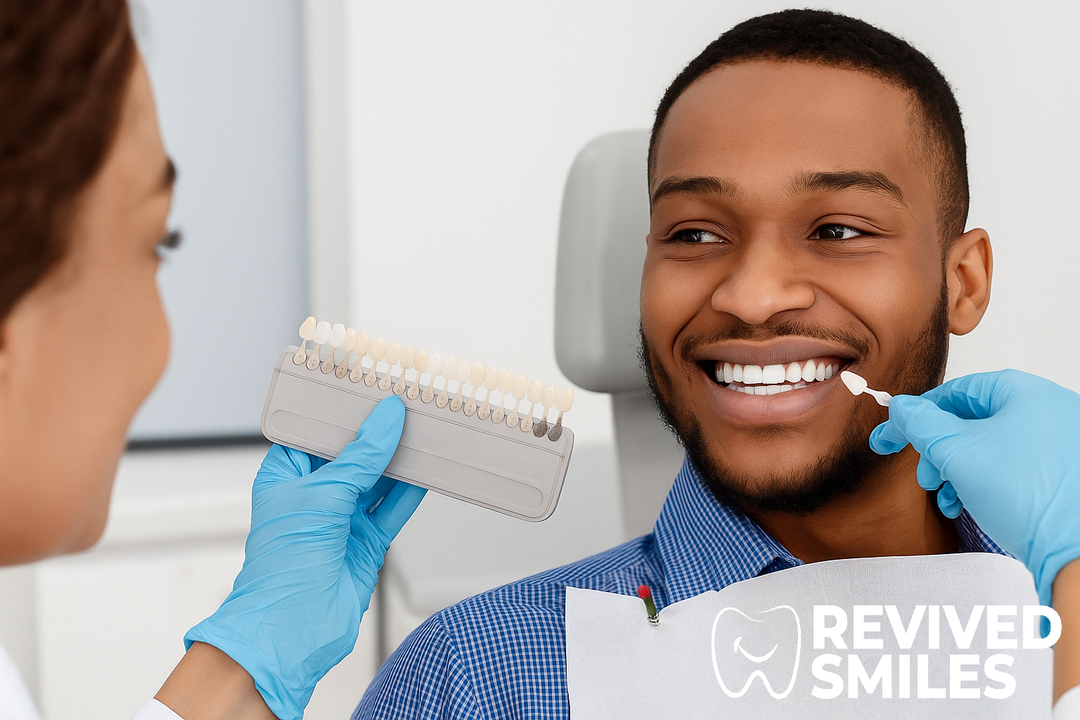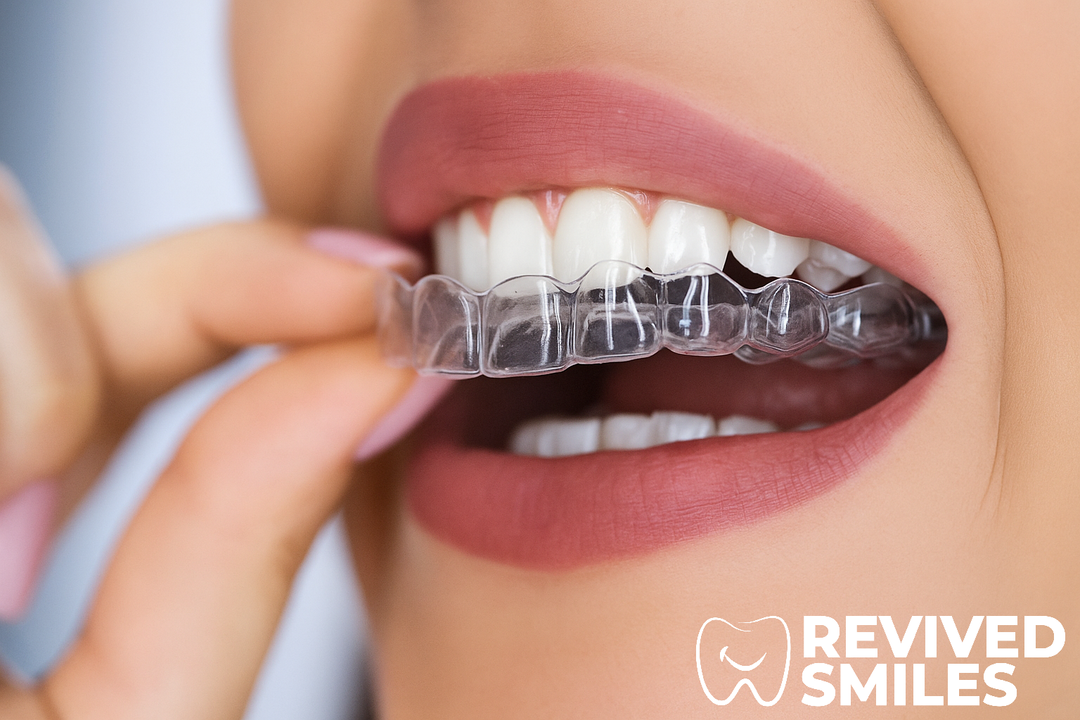Everything You Need to Know About Nightguards: Protecting Your Smile

Do you wake up with jaw pain, headaches, or worn-down teeth? You might be grinding or clenching your teeth at night without even realizing it. This common condition, known as bruxism, can lead to serious dental issues if left untreated. Fortunately, there’s an effective solution: a nightguard. In this comprehensive guide, we’ll explore everything you need to know about nightguards, including how they work, the benefits they offer, and why they might be the key to protecting your smile.
What Is a Nightguard?
A nightguard, also known as a dental guard or bite splint, is a custom-made device that you wear over your teeth while you sleep. Its primary function is to protect your teeth from the damaging effects of grinding (bruxism) and clenching, which can occur unconsciously during the night. Nightguards are typically made from durable, comfortable materials like acrylic or soft plastic, and are custom-fitted to your mouth to ensure a secure and comfortable fit.
Why Do You Need a Nightguard?
Bruxism is a condition that affects millions of people, often without their knowledge. The constant grinding and clenching can lead to a variety of dental problems, including:
- Tooth Damage: Grinding can wear down the enamel on your teeth, leading to increased sensitivity, chips, cracks, and even tooth loss.
- Jaw Pain: The tension from clenching can cause significant pain in the jaw muscles, leading to conditions like temporomandibular joint disorder (TMJ).
- Headaches: Bruxism often results in frequent headaches, especially upon waking.
- Disrupted Sleep: The discomfort caused by grinding and clenching can affect your sleep quality, leading to fatigue and other health issues.
A nightguard acts as a barrier between your upper and lower teeth, preventing them from grinding against each other and distributing the pressure of clenching more evenly across your jaw. This can alleviate the symptoms of bruxism and protect your teeth from further damage.
Types of Nightguards
There are several types of nightguards available, each designed to meet different needs and preferences. Here’s a breakdown of the most common types:
1. Soft Nightguards
Soft nightguards are made from a flexible, rubber-like material and are typically recommended for individuals with mild bruxism. They are comfortable to wear and provide a cushiony feel, making them a popular choice for first-time users.
Pros:
- Comfortable: Soft nightguards are often more comfortable and easier to get used to than harder materials.
- Affordable: They are generally less expensive than other types of nightguards.
Cons:
- Less Durable: Soft nightguards may wear out more quickly than harder varieties, especially for those with severe bruxism.
2. Hard Nightguards
Hard nightguards are made from a rigid acrylic material and are recommended for individuals with severe bruxism or TMJ disorders. They are highly durable and provide strong protection against grinding and clenching.
Pros:
- Durable: Hard nightguards last longer and provide robust protection against heavy grinding.
- Effective for TMJ: They can help alleviate the symptoms of TMJ by realigning the jaw and reducing tension.
Cons:
- Less Comfortable: The rigid material may take longer to adjust to and may feel bulkier in the mouth.
3. Dual-Layered Nightguards
Dual-layered nightguards combine the comfort of a soft nightguard with the durability of a hard nightguard. They feature a soft, cushiony inner layer and a hard, protective outer layer, making them a versatile option for various levels of bruxism.
Pros:
- Best of Both Worlds: Offers both comfort and durability, making them suitable for a wide range of users.
- Customizable: They can be tailored to your specific needs, balancing comfort and protection.
Cons:
- Cost: Dual-layered nightguards are often more expensive than single-material options.
Benefits of Using a Nightguard
Using a nightguard can provide numerous benefits beyond simply protecting your teeth from grinding. Here’s how a nightguard can positively impact your oral health and overall well-being:
1. Prevents Tooth Damage
The most immediate benefit of wearing a nightguard is the prevention of tooth damage. By acting as a protective barrier, a nightguard shields your teeth from the excessive wear and tear caused by grinding, helping to preserve your enamel and prevent chips, cracks, and other forms of damage.
2. Alleviates Jaw Pain
For those who suffer from jaw pain or TMJ disorders, a nightguard can be a game-changer. By reducing the pressure on your jaw muscles and joints, a nightguard can alleviate pain and discomfort, allowing you to wake up feeling refreshed and pain-free.
3. Reduces Headaches
Morning headaches are a common symptom of bruxism, caused by the constant tension in the jaw and temples. Wearing a nightguard can significantly reduce the occurrence of these headaches by minimizing the strain on your muscles during the night.
4. Improves Sleep Quality
Bruxism can disrupt your sleep, leading to poor sleep quality and daytime fatigue. A nightguard helps to minimize the discomfort associated with grinding and clenching, allowing you to sleep more peacefully and wake up feeling rested.
5. Protects Dental Work
If you have crowns, bridges, or other dental work, a nightguard can help protect these investments by preventing excessive wear and damage. This can extend the life of your dental work and save you from costly repairs or replacements.
How to Care for Your Nightguard
Proper care and maintenance of your nightguard are essential to ensure its effectiveness and longevity. Here are some tips to keep your nightguard in top condition:
1. Clean Your Nightguard Daily
After each use, rinse your nightguard with lukewarm water and brush it gently with a soft toothbrush. Avoid using hot water, as it can warp the material. You can also use a mild soap or a non-abrasive denture cleaner to remove any bacteria or buildup.
2. Store Your Nightguard Properly
When not in use, store your nightguard in its protective case to prevent it from getting damaged or contaminated. Ensure the case is clean and dry to avoid bacterial growth.
3. Avoid Exposure to Heat
Exposure to high temperatures can cause your nightguard to lose its shape. Keep it away from direct sunlight, hot water, and other sources of heat.
4. Regularly Inspect for Damage
Over time, your nightguard may develop signs of wear and tear, such as cracks or thinning. Regularly inspect your nightguard for any damage and replace it as needed to ensure continued protection.
5. Schedule Regular Dental Check-Ups
Even with a nightguard, it’s important to maintain regular dental check-ups. Your dentist can check the fit of your nightguard, make any necessary adjustments, and ensure that it’s still providing adequate protection.
Common Questions About Nightguards
1. How long does a nightguard last?
The lifespan of a nightguard varies depending on the type of material and the severity of your bruxism. On average, a nightguard can last between 1 to 5 years. However, with proper care, some nightguards may last even longer.
2. Can I use a store-bought nightguard?
While over-the-counter nightguards are available, they may not offer the same level of protection or comfort as a custom-fitted nightguard from your dentist. Custom nightguards are tailored to your specific bite and dental needs, making them a more effective and comfortable option.
3. Is a nightguard the same as a mouthguard?
No, a nightguard is specifically designed to protect against bruxism (teeth grinding) and is worn during sleep. A mouthguard, on the other hand, is typically used during sports activities to protect teeth from impact injuries.
Conclusion: Is a Nightguard Right for You?
If you’re experiencing symptoms of bruxism, such as jaw pain, headaches, or worn-down teeth, a nightguard could be the solution you need. By providing protection and reducing the harmful effects of grinding and clenching, a nightguard can help preserve your smile and improve your overall quality of life.
Consult with your dentist to determine the best type of nightguard for your needs and take the first step toward a healthier, more comfortable night’s sleep.





Leave a comment